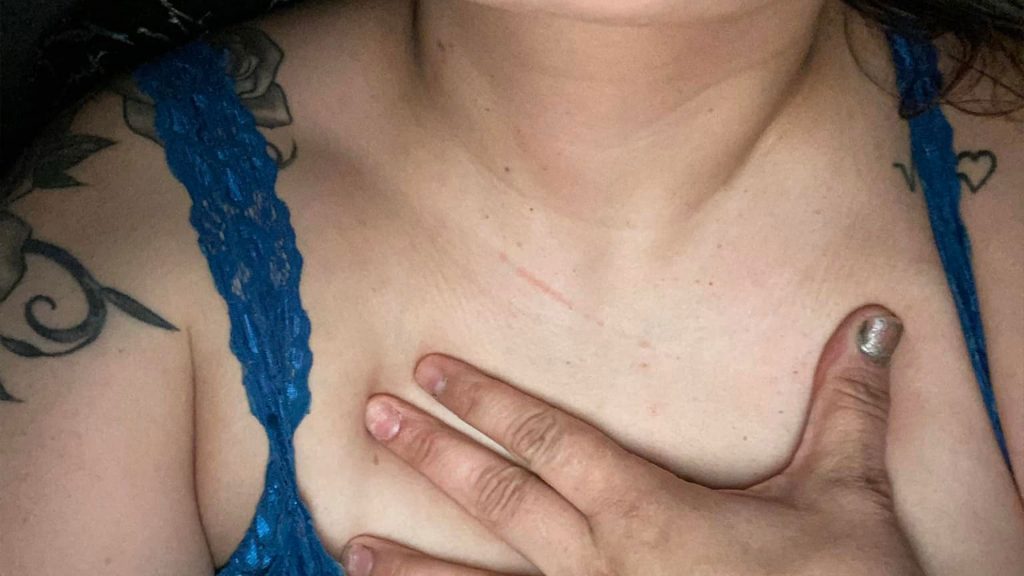
A woman shows where her ex-boyfriend held a knife and drew blood. Photo: Submitted.
A First Nations woman in Saskatoon says police did little to investigate after she was attacked by her boyfriend nor did officers follow up with resources to help her through the ordeal.
The terrifying attack happened in the woman’s condo on March 6, 2021, while her 17-year-old son was in the other room.
“(My boyfriend) walked up to my bed, pushed his left elbow into the right side of my chest to pin me down, then proceeded to hold the knife to my throat, using his right hand,” the victim wrote in her police statement. “He continued to scream obscenities to me, while pushing the knife against my throat.
“I began yelling louder for my son, who must have finally heard me, because I heard his bedroom door open,” she continued in the statement that was shared with APTN News.
“I recall (my now ex-boyfriend) turning his head to look at the bedroom door, and I used this moment to my advantage. I kicked with both my legs, while simultaneously pushing him with my forearms. As I was doing this, he made a slashing motion with the knife, narrowly missing my throat.”
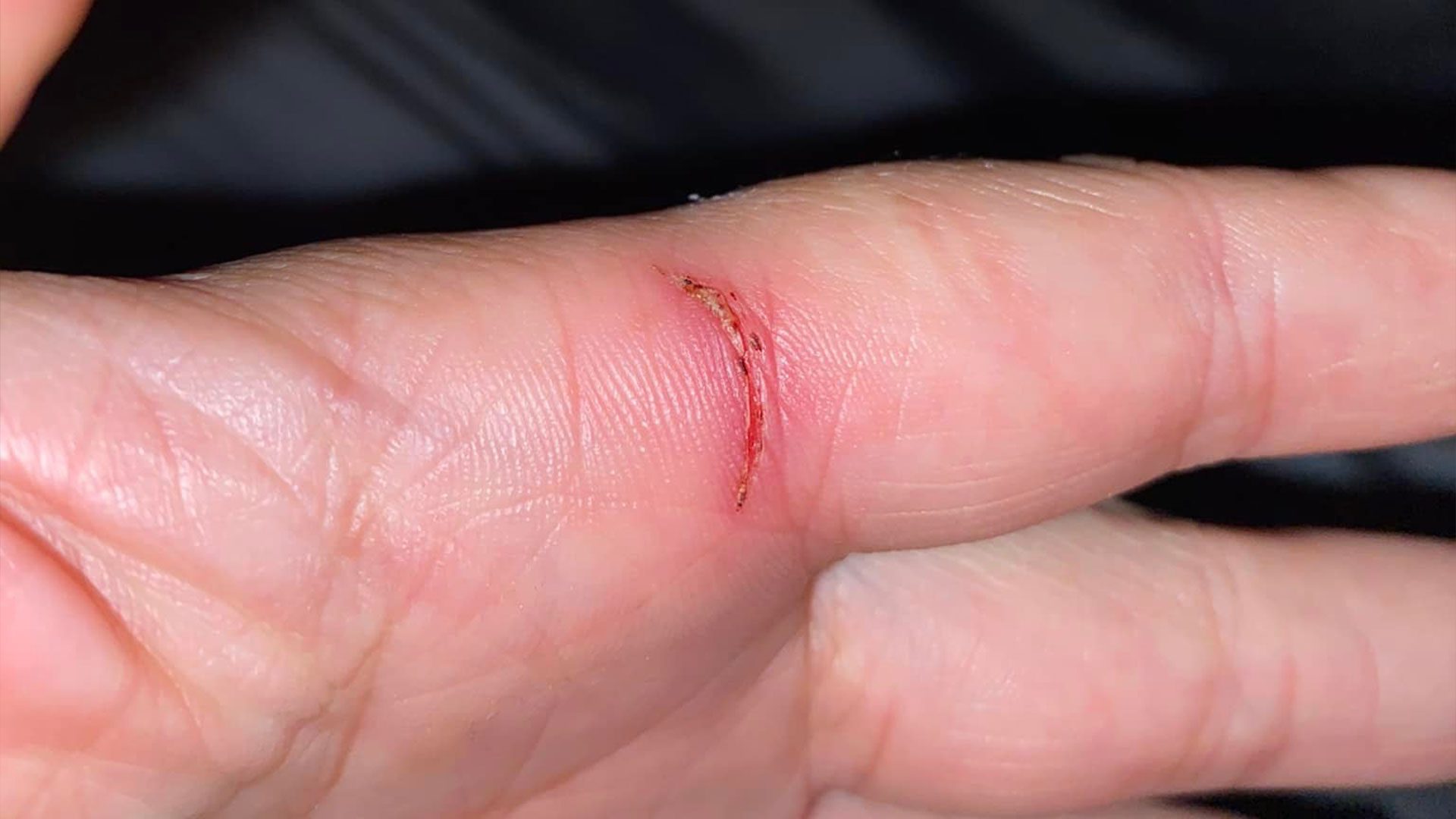
The victim, who also suffered a bloody wound to her hand, now has a small scar on her neck and a big case of post-traumatic stress disorder (PTSD).
She contacted APTN after police called April 29 to say there would be no court case because the Crown saw little chance of conviction.
The woman, who is angry, blames patrol officers who responded to the incident for botching the case.
She said they didn’t take witness statements, photos of her injuries or the knife her ex, who is also First Nations, dropped on his way out.
“The police officers, right from the initial incident, they were very cold and callous,” she said. “They said, ‘We’re not going to bother charging…because lots of times people change their mind.’”
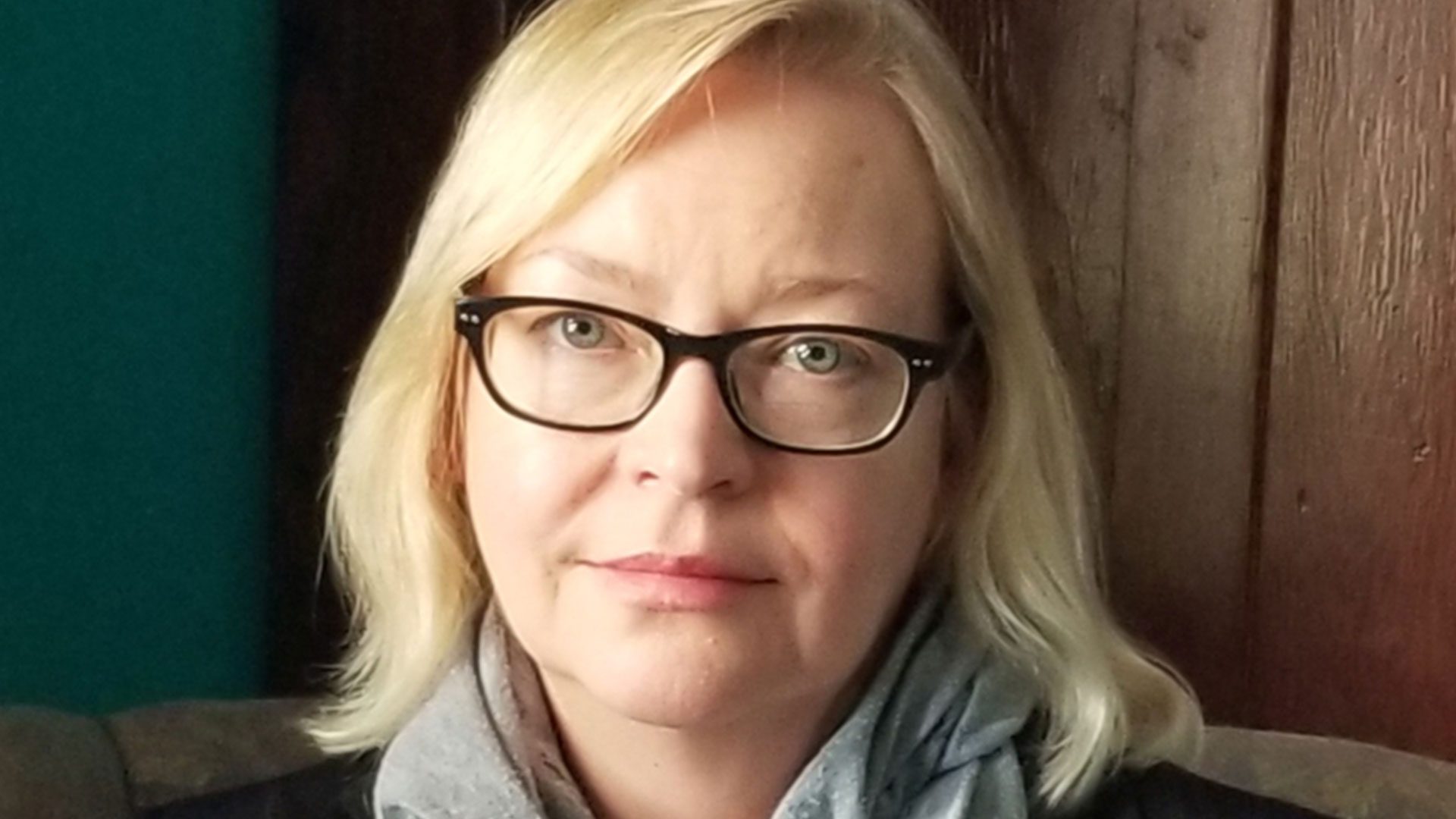
She said the officers left a complaint form for her to fill out and return, which she did a few weeks later.
But Jo-Anne Dusel, a long-time advocate for women experiencing violence in Saskatchewan, said this is not the correct way for police to respond.
She said police can lay charges on their own without waiting for the victim.
“Police in Saskatchewan are supposed to be going through a domestic violence checklist. This is both RCMP and municipal [police],” Dusel said in a telephone interview.
“According to the law, if the police do see any indication that a crime has taken place, they are obligated to press charges.”
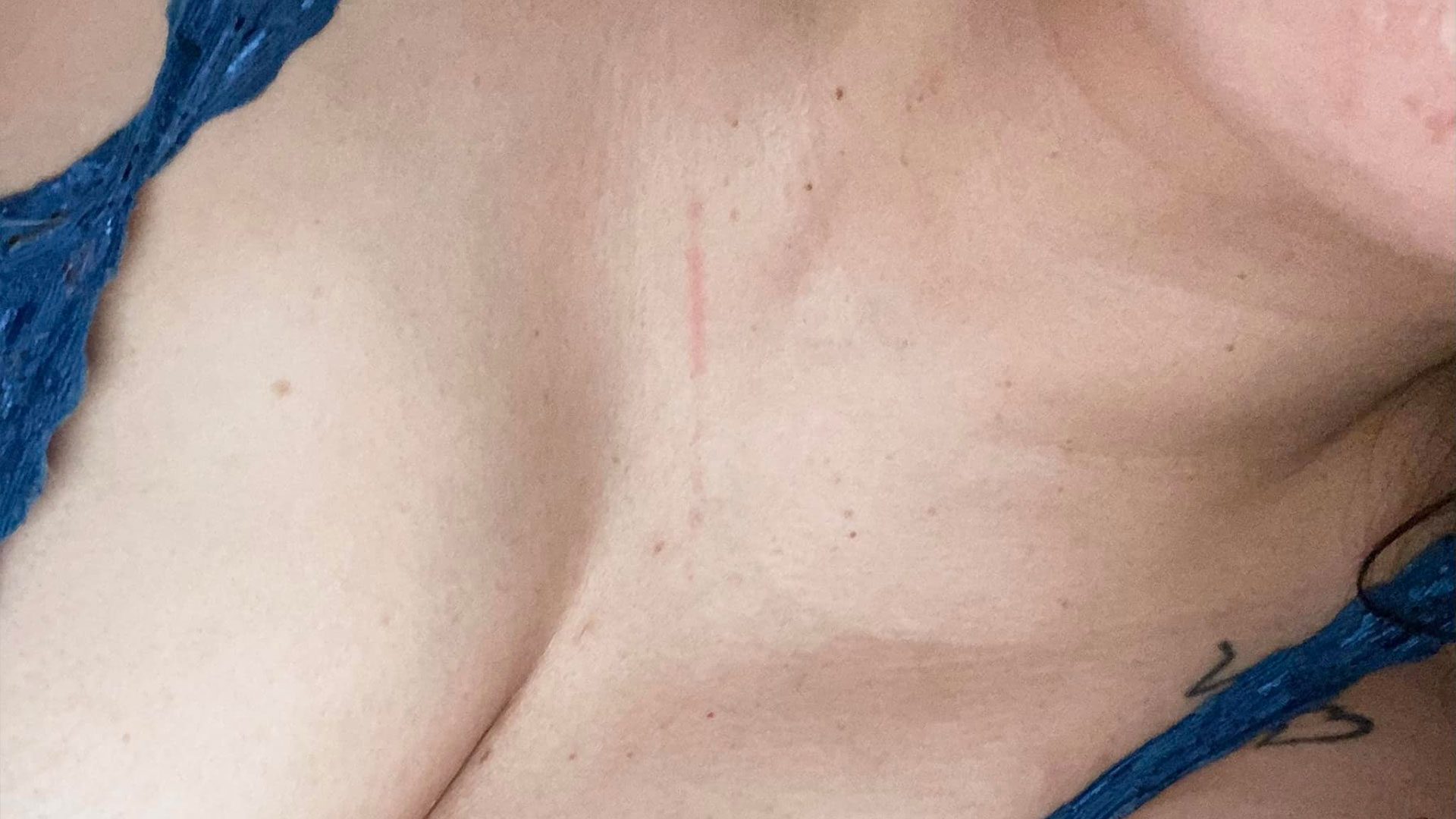
The victim said she hasn’t spoken with the attacker since the incident. Something, she said, police called to double-check months later.
She said they accused her of coaching her son and best friend as witnesses, and embellishing her account.
“I was getting that ‘you’re exaggerating the story as being a story’ kind of attitude.”
APTN is concealing her identity because she works in the justice system where she interacts with police. But her inside knowledge into which evidence leads to charges continues to fuel her anger.
“It’s wrong that I live with [PTSD] and [my ex-boyfriend] walks away without a blemish,” she said.
My complaint “is not that they’re incompetent per se, but that they don’t take it seriously when an Indigenous woman reaches out for help. Especially considering the amount of missing and murdered Indigenous women.”
Saskatoon Police Service
The Saskatoon Police Service said its followed up several times with the victim to prepare the case for the Crown.
Still, the victim said there was a lack of communication and support that left her unprepared for the final decision.
“They said, ‘So we’re not pursuing the charge. And I said, ‘Well, I don’t agree with this. I just feel that if you guys investigated it properly.’”
Dusel, the coordinator of the Provincial Association of Transition Houses and Services of Saskatchewan (PATHS), said the victim is understandably devastated.
“This is heartbreakingly familiar,” she said of statistics that show Saskatchewan has the highest incidence of intimate partner violence in Canada, followed closely by Manitoba.
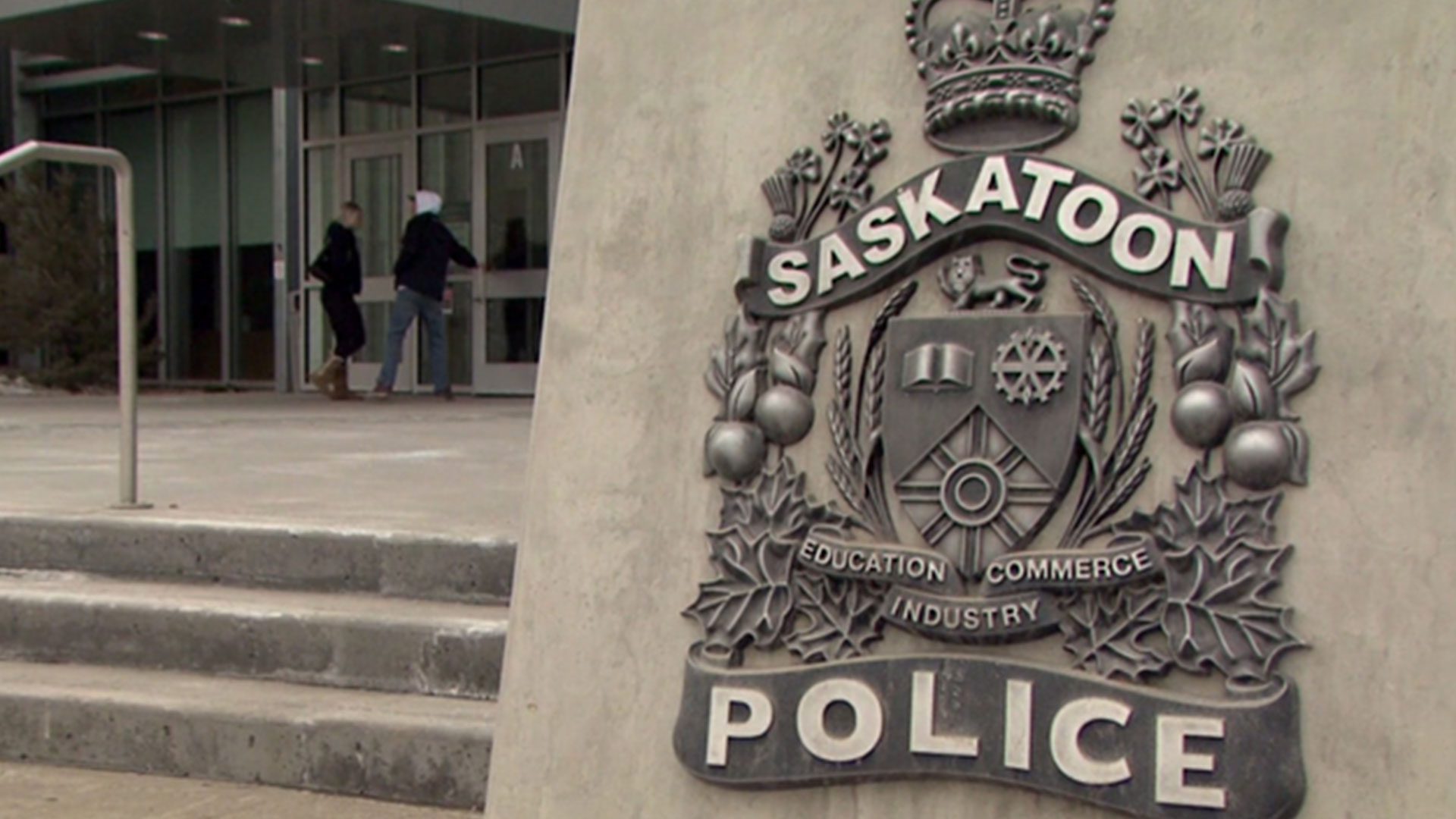
The lack of charges can further traumatize victims and embolden abusers, said Dusel, who worked in a domestic violence shelter for 20 years.
“It continues to shock me that the police themselves don’t follow the appropriate procedure, which is for them to be the ones to place charges. They do not need the statement of the victim.”
The victim said she remains fearful her ex will return. She said she was not assigned a domestic violence support worker as is the practice with the Saskatoon Police Service.
“Why is my life not important enough to even bring it into court to fight my case?” she asked. “Victims of domestic violence try to come forward and they don’t take them seriously.”
Alyson Edwards, a spokesperson for Saskatoon police, said a patrol officer “did quite a bit of follow-up” before sending the file to the Crown.
Victim Services
But “I was able to confirm that the file was not referred to Victim Services and we are not sure why,” Edwards added. “It should have been.”
Edwards said the woman can still contact Victim Services for support. The victim can also file a formal complaint about the way her case was handled.
The victim said she has conflicting emotions and needs professional advice.
“I feel guilty for bringing this panic to our home. There were red flags [exhibited by the ex that she didn’t address]; I blame myself.
“I don’t think it’s OK that this is happening to me,” she added. “I don’t think it’s OK that a man gets to hold a knife to my neck and literally try to cut my throat.”
But despite the systemic setbacks she experienced with the police and Crown, the woman encouraged other victims to continue to come forward.
“I want other victims of domestic abuse to know it’s OK to come forward,” she said. “It’s Ok to use your voice and OK to reach out for support. Because too many [abusers] are not.”









